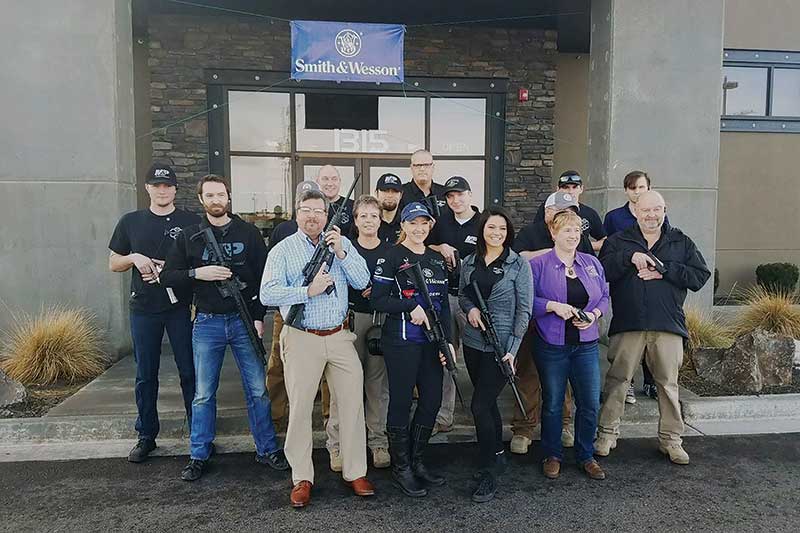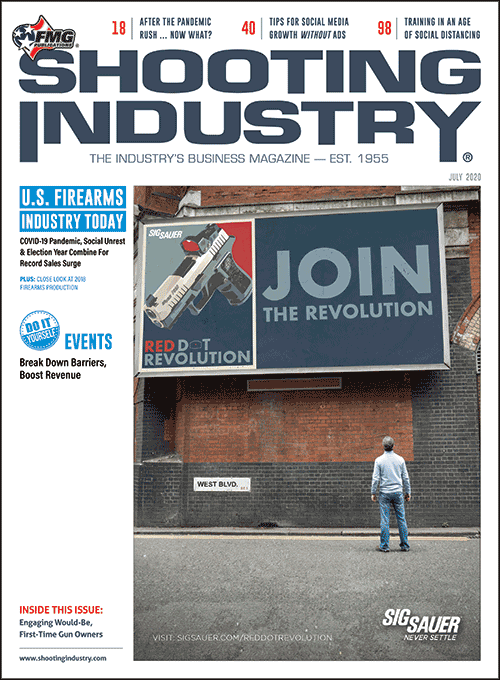5. Collect customer info before and during the event, but make every effort to emphasize interpersonal interactions while it’s taking place.
As you know, an event affords time for you and your staff to interact personally with attendees. This is a grand opportunity to get to know real people and hear what they have to say about your product or service. As such, coach your staff to make every interaction a genuinely friendly conversation where the attendee is thanked for their interest, directed accordingly and generally just shown a good time.
For events including instruction or hands-on experiences with products or services, ask for attendee feedback right then and there. You can have them fill out a card or an online survey, sure, but having a staff member just ask and listen carefully to them may bring insights you won’t normally get in other contexts. Keep it simple, ask what they enjoyed about today’s event and what could have been done to make it better. Of course, try to collect their contact information some other way — perhaps this already occurred through a registration process or other means.
Later, after the event is over, reach out to them with a tasteful email or other follow-up offering some kind of useful content and not merely a sales pitch.
5 Event Marketing Tips
At the time of this writing, with all the complexity of dealing with COVID-19, states were in the initial stages of lifting lockdown restrictions. Whether it was called Stay Safe, Stay Home, Shelter In Place or something else, the idea was we were all told to stay home and lay low, avoiding social interaction as much as possible in order to help prevent further spread of the virus.
Efforts aimed at “flattening the curve” resulted not only in in-home isolation, but also widespread cancellations of events both small and large.
Businesses everywhere felt the impact of the stay-home orders and many suffered greatly as people were unable or unwilling to venture out to make normal purchases. While some shooting industry-related businesses enjoyed a boon from the social and political uncertainty brought on by COVID-19, both the positive and negative effects on the market are probably still being felt today and will continue to work themselves out as time goes on.
In any case, we all saw the importance of people being able to interact with people — directly, face-to-face. We bemoaned the canceling of events that would bring people together. Suddenly, clichéd phrases such as “everyone’s in sales” and “we’re all in the people business” seemed not so cliché any longer. Unfortunately, there are businesses that will not have made it to today.
At some point — if not already then hopefully soon — we’ll likely return to some semblance of “normal.” When that time comes, I’m guessing there may be hugs and high-fives and special parties thrown. Postponed events will be rescheduled, business may be restored or revived for some and events will once again play a key role in marketing. When they do, and when your business is ready to plan one, keep these five tips in mind.
They can be a big expense in
an overall marketing budget,
but events are worthy investments
because of the power of human interaction.
1. Recognize again the value of in-person events and interpersonal communication and invest in it.
Now more than ever, people may have an elevated sense of the importance of human interaction — on many levels far more important than business and sales, but not less than those. Generally, events for marketing businesses result in positive outcomes anyway; this will be even more true through the rest of 2020 and into 2021 as people will likely be very excited to reconvene with fellow human beings in a multitude of contexts.
As such, if you’ve postponed an event due to the recent COVID-19 challenges, consider the value in not only rescheduling it but also elevating it. If your business has never organized an event, consider the value in creating one. Yes, they can be a big expense in an overall marketing budget, but events are worthy investments because of the power of human interaction. As worthy as systematic marketing communications are, most customers who are convinced to purchase a product or service probably do so due to a human interaction — advice from a trusted family member or friend or voice in the community.
2. Time your event so it works together with other events in the area (market and geography). Or partner with an existing one.
While this tip may seem obvious, it’s just too easy to become introspective and not take time to see what’s happening in and around your area. So, before you pick a date find out what else is happening in the immediate area.
Note the existence of other events in the same time/space isn’t necessarily a conflict or problem. You may decide holding an outdoor, two-day event the same week as another in your area actually increases the likelihood of participation and creates synergies for broad communication. It may even benefit you to partner with the coinciding event and help each other out!
3. Schedule an event far enough out and promote it according to a plan, with incentives for those who sign up early.
Event planning is challenging because it can be difficult to know just how many people will actually show up. After all, no business owner wants to invest in an effort that may only net a fraction in return. Also, you have to announce an event to provide plenty of time for potential attendees to plan for it, as well as find the right cadence for its promotion. Generally, the longer or more complex the event, the more advance notice is needed.
Similarly, increase event-focused communications as the date draws near. If you need to know for sure the number of people who will show up, be sure to incentivize them to sign up early — and perhaps charge a fee to gain entrance to the event. You can sell discounted tickets in advance and charge more “at the door” for those who decide last-minute to attend. It depends on the scope and purpose of the event. In any case, don’t hesitate to consult with a local event-planning firm.
Planning an event as a business
manager is one thing. Planning it from
the experience of the attendee is another.
4. Plan out every hour, half hour or quarter hour, the varying locations or settings of your event and identify responsible staff in every detail.
Planning an event as a business manager is one thing. Planning it from the experience of the attendee is another. While the former is the necessary starting point, the latter is critical to successful event planning.
So, once you have created an event plan as a business manager, ask people outside your business to help you plan by visualizing it from the moment they hear about it to the time they arrive to each part of the event itself. It’s usually a very eye-opening exercise for the business manager whose job it is to think of everything a customer may or should experience at an event.
Depending on the event logistics, you’ll want to be able to account for virtually every minute of an attendee’s time — where they may be, who or what they will interact with, how they will know what to do and who’s responsible for each part. This involves staff responsibilities at an event, signage, food and beverages, restrooms, retail opportunities and more.
In planning, create a spreadsheet or matrix to account for chunks of time, locations and responsible staff. Have your “outsider consultants” walk through as many scenarios as they can think of, literally minute by minute, and have a plan (or person) for handling all of it.
And, It’s A Conversation Starter
The key is the attendee will be able to look back on a genuinely helpful and fun event — where there was little pressure — and think positively about that business as a resource to them. While you may have done much leading up to the event (likely an exhausting effort!), in many senses, it’s where the conversation with a potential customer begins.
Dealers, what events are in the works at your store? We want to hear about it and share your successes!
comments@shootingindustry.com






